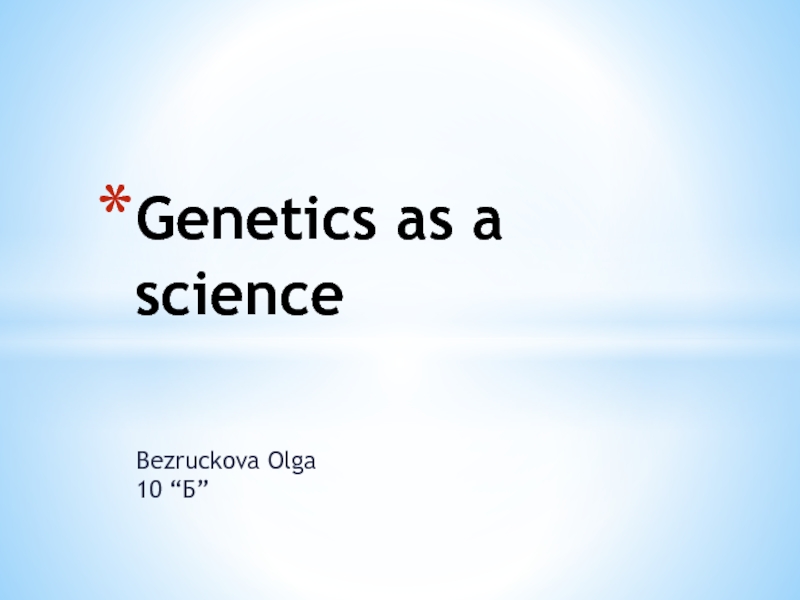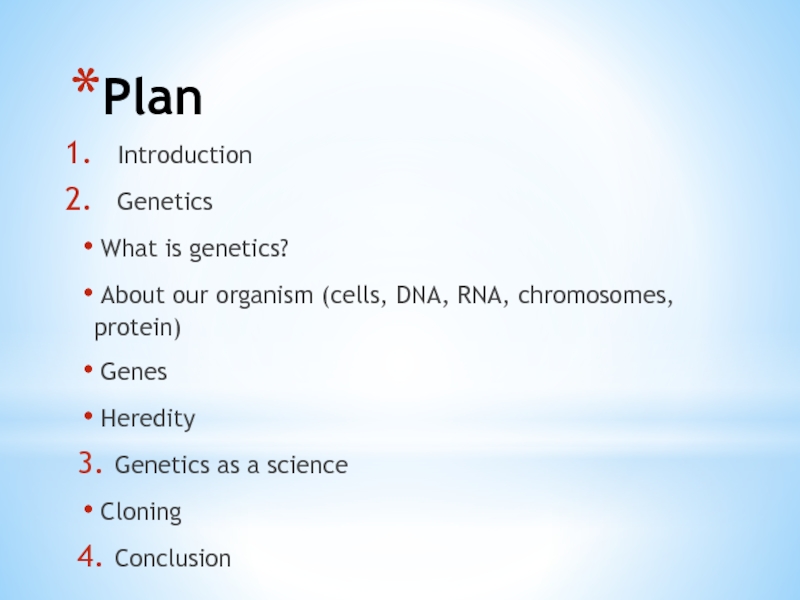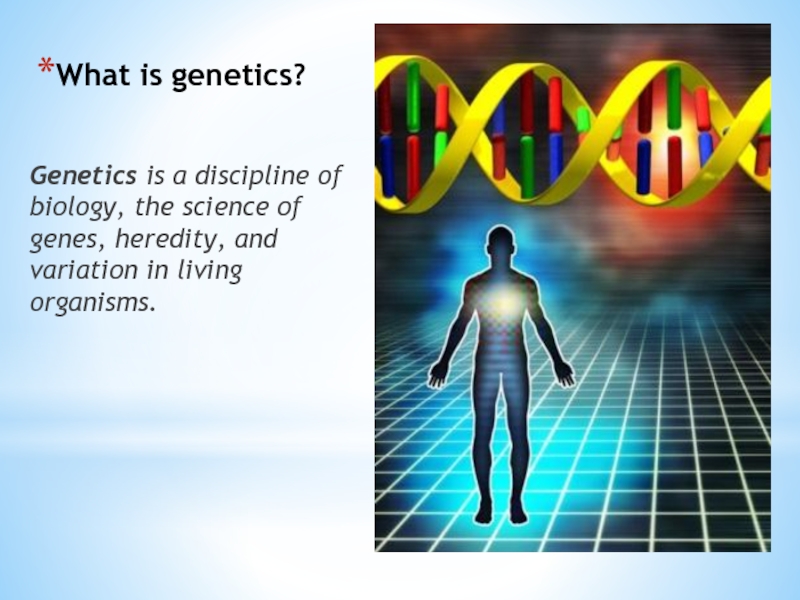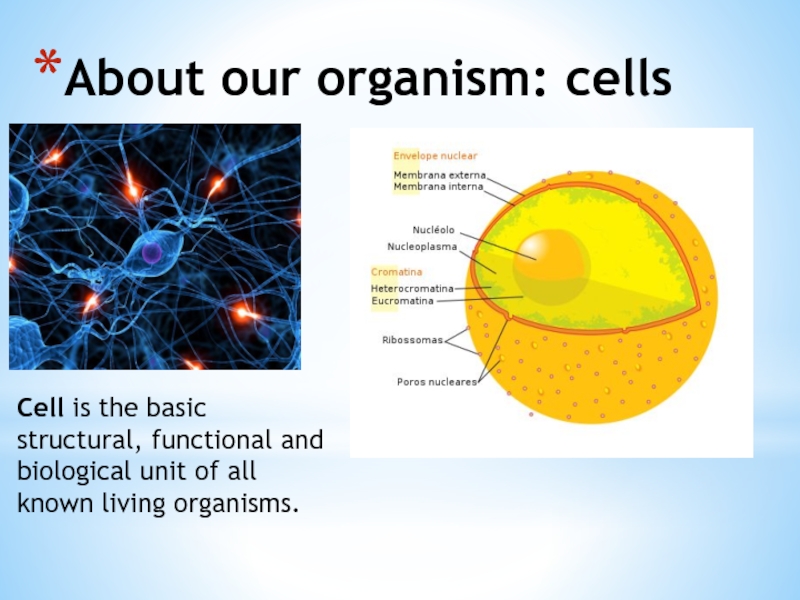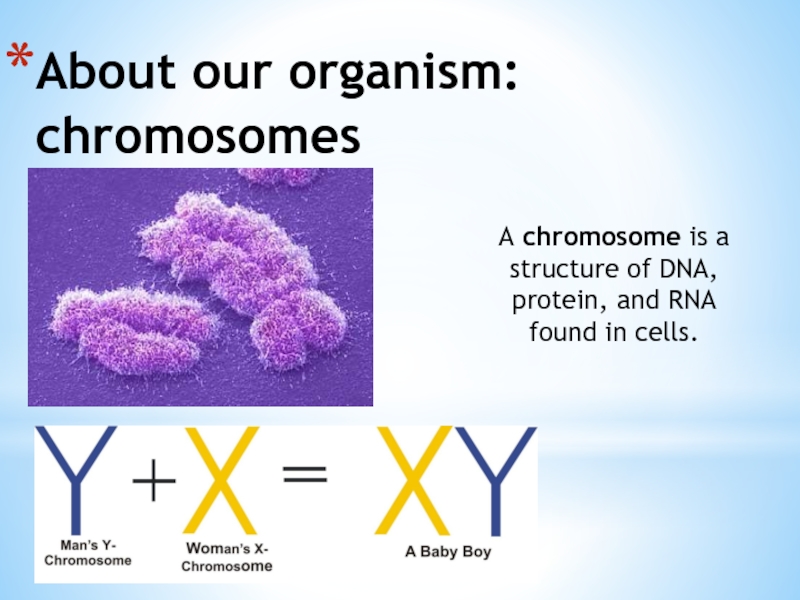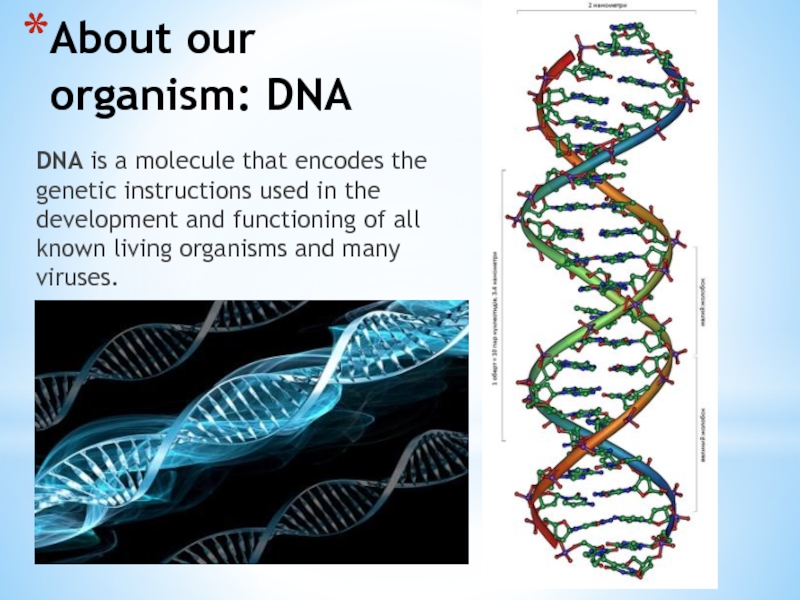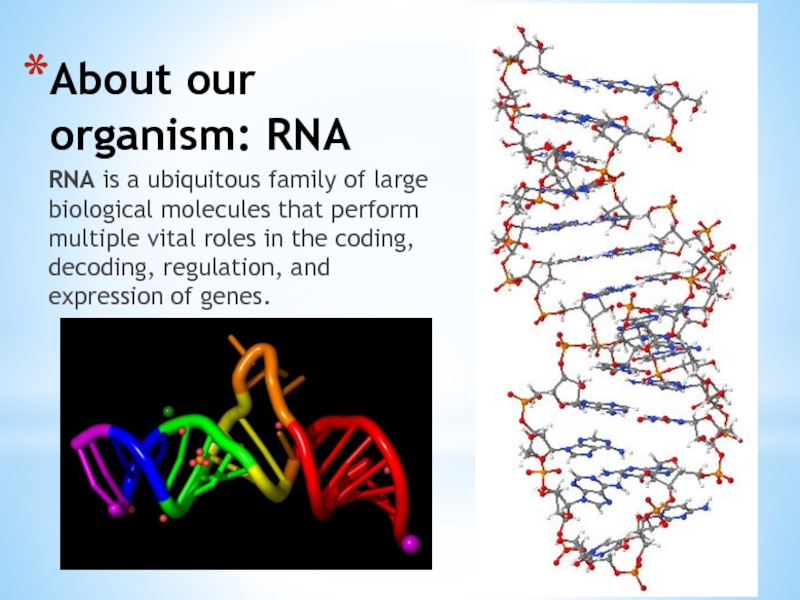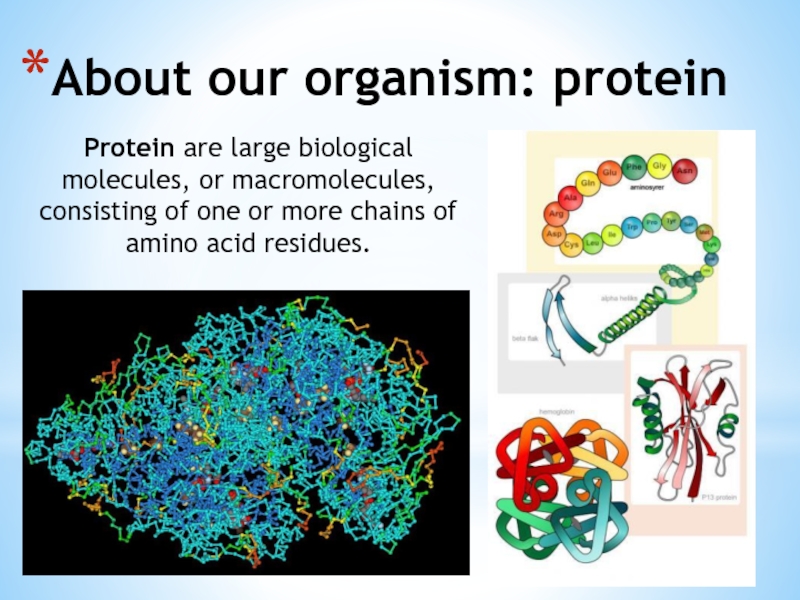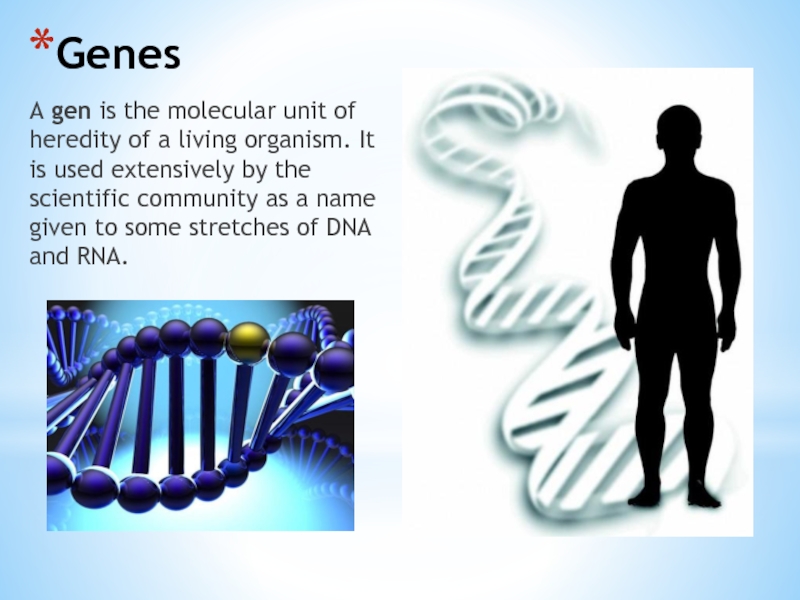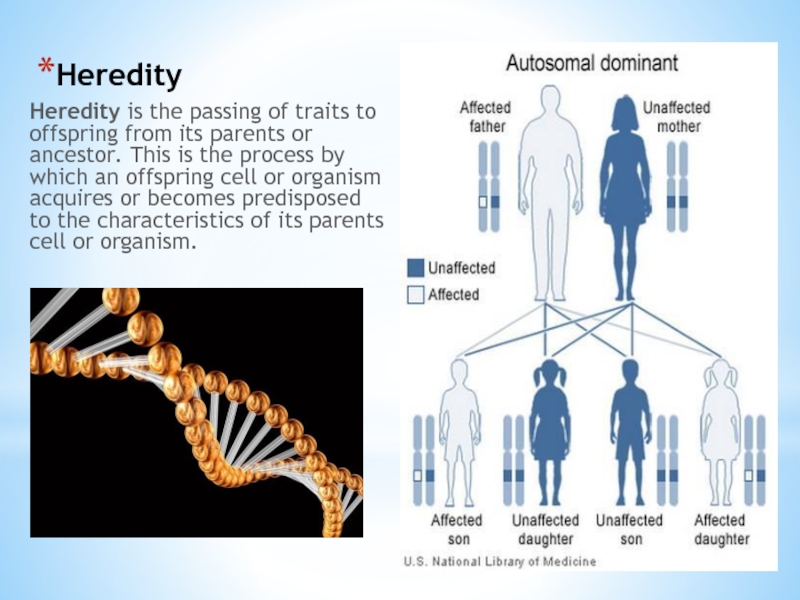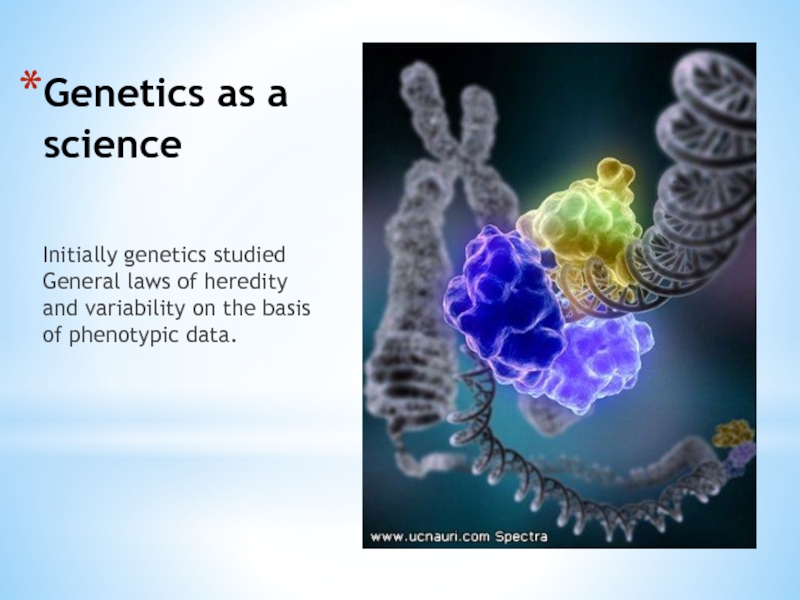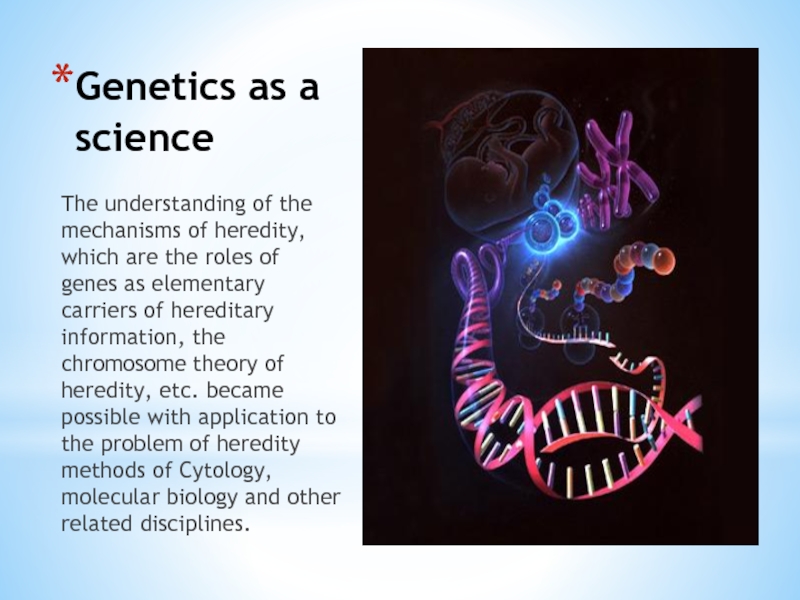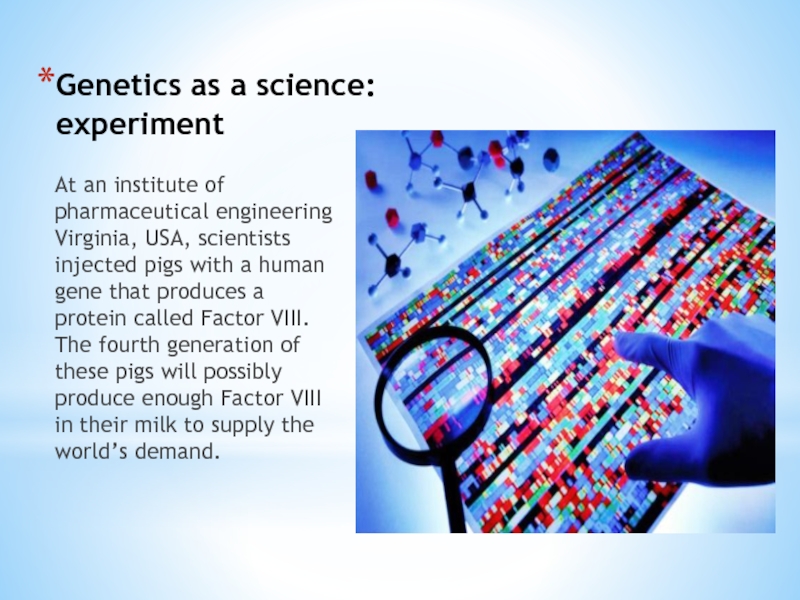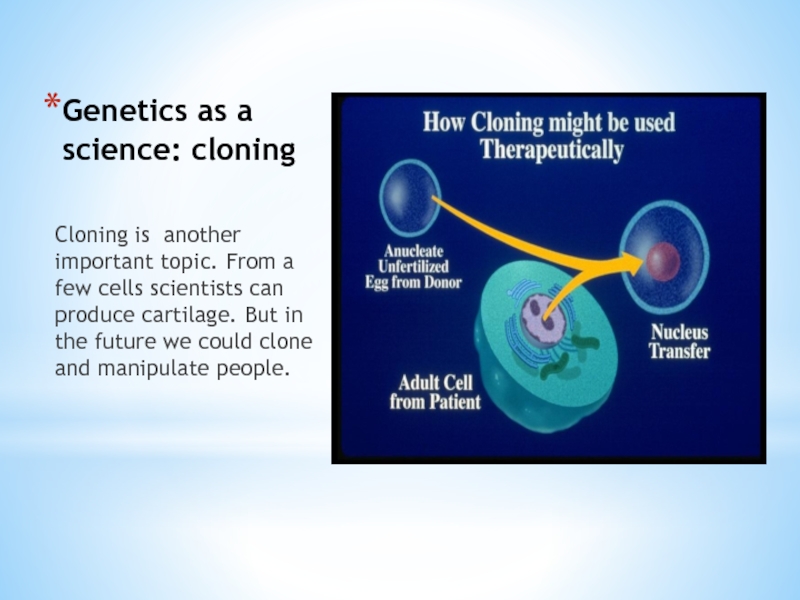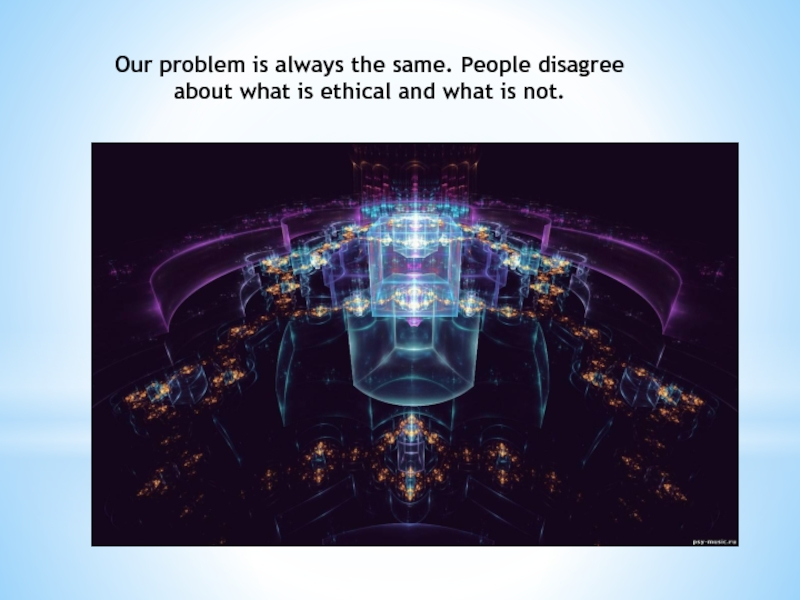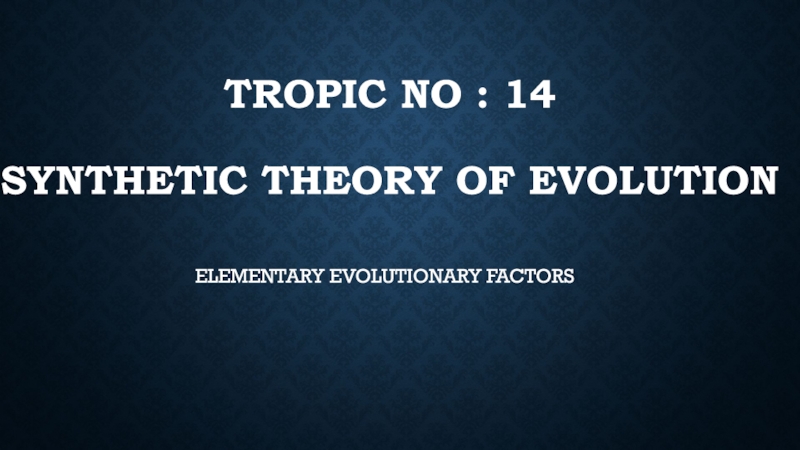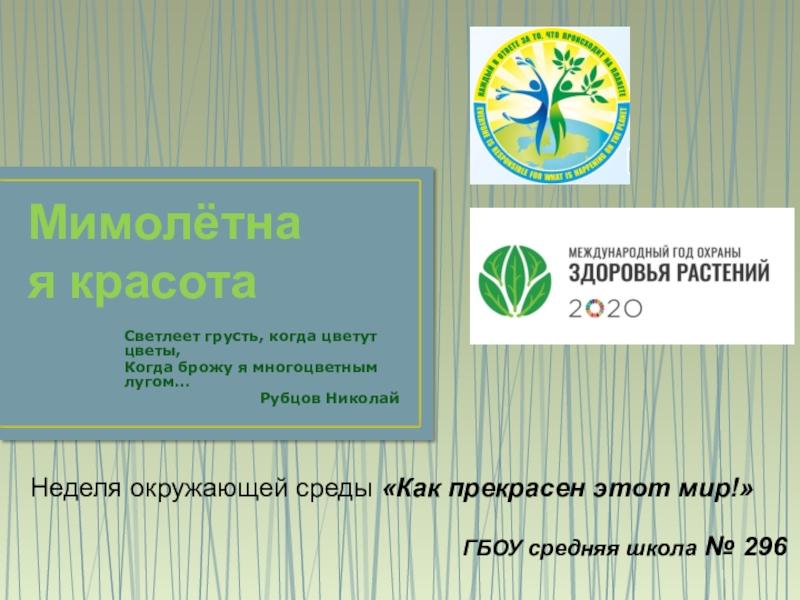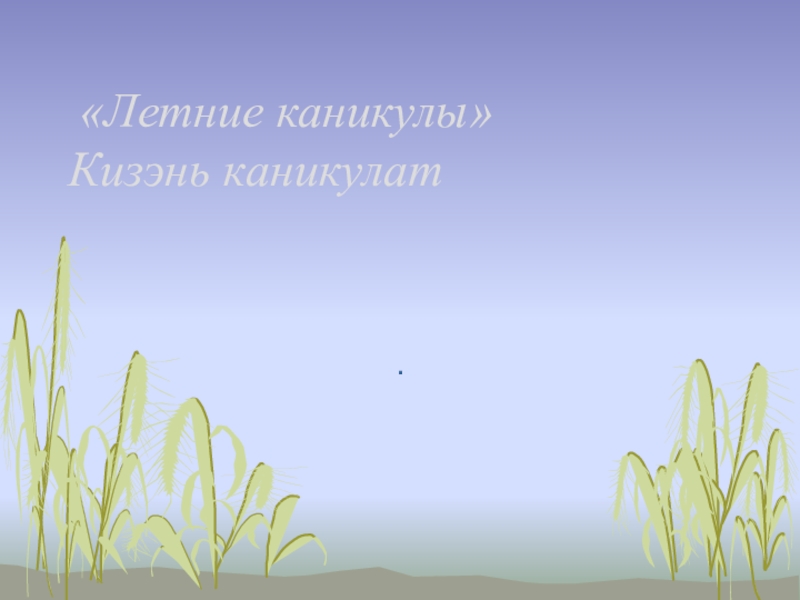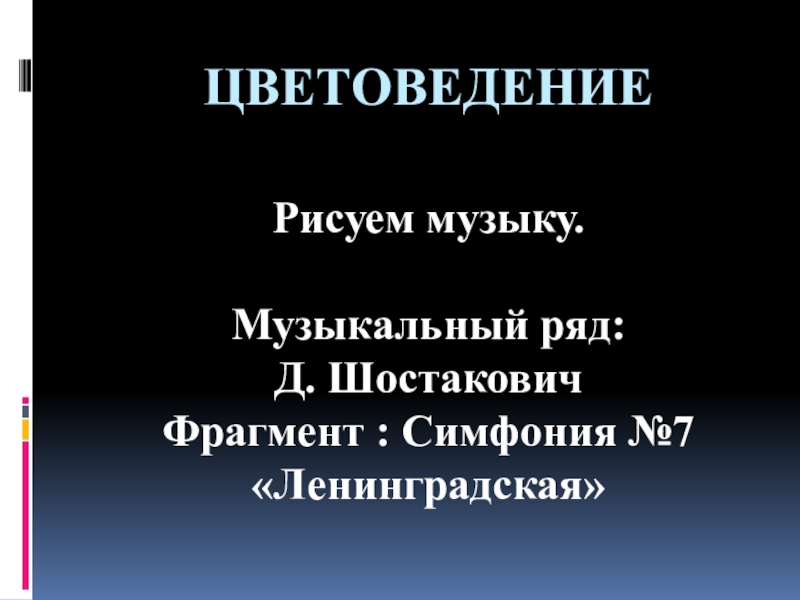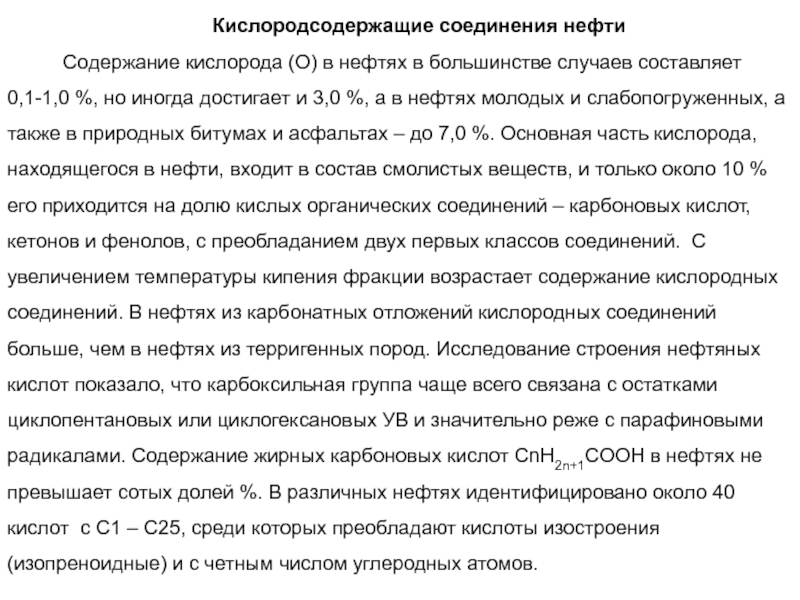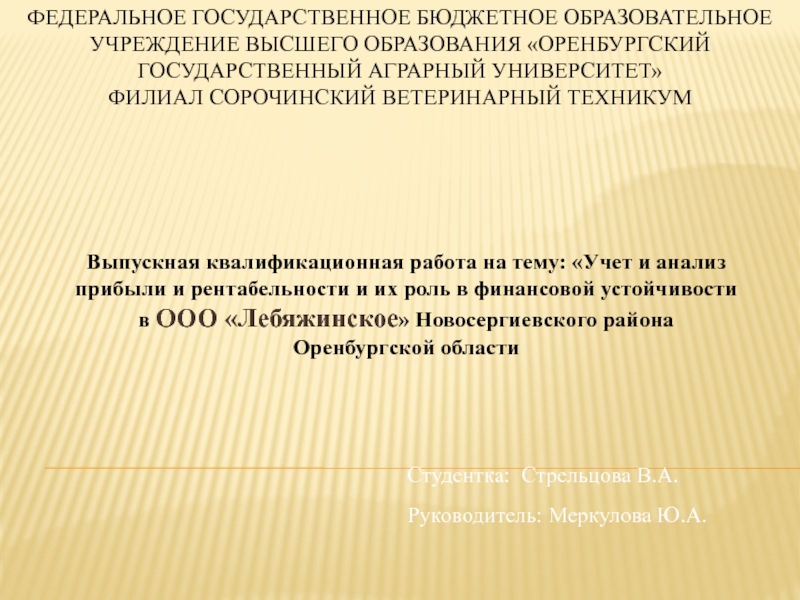Разделы презентаций
- Разное
- Английский язык
- Астрономия
- Алгебра
- Биология
- География
- Геометрия
- Детские презентации
- Информатика
- История
- Литература
- Математика
- Медицина
- Менеджмент
- Музыка
- МХК
- Немецкий язык
- ОБЖ
- Обществознание
- Окружающий мир
- Педагогика
- Русский язык
- Технология
- Физика
- Философия
- Химия
- Шаблоны, картинки для презентаций
- Экология
- Экономика
- Юриспруденция
Genetics as a science
Содержание
- 1. Genetics as a science
- 2. PlanIntroductionGenetics What is genetics? About our organism
- 3. Genetics is a discipline of biology, the
- 4. About our organism: cellsCell is the basic
- 5. A chromosome is a structure of DNA,
- 6. About our organism: DNADNA is a molecule
- 7. About our organism: RNARNA is a ubiquitous
- 8. Protein are large biological molecules, or macromolecules,
- 9. GenesA gen is the molecular unit of
- 10. HeredityHeredity is the passing of traits to
- 11. Genetics as a scienceInitially genetics studied General
- 12. Genetics as a scienceThe understanding of the
- 13. Genetics as a science: experimentAt an institute
- 14. Genetics as a science: cloningCloning is another
- 15. Our problem is always the same. People disagree about what is ethical and what is not.
- 16. Скачать презентанцию
PlanIntroductionGenetics What is genetics? About our organism (cells, DNA, RNA, chromosomes, protein) Genes Heredity3. Genetics as a science Cloning4. Conclusion
